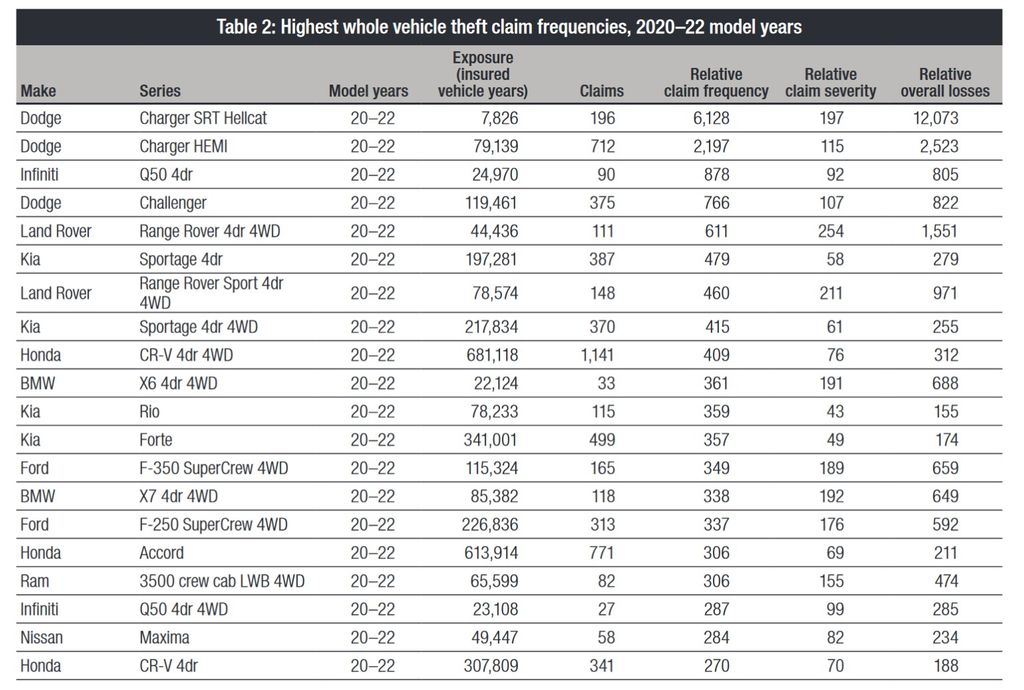The Tesla Model 3 all-wheel drive and Model Y all-wheel drive are the least stolen vehicles in the United States, according to the Highway Loss Data Institute’s (HLDI’s) latest insurance report that tracks thefts for passenger cars, pickups, SUVs, and vans from the 2020 to 2022 model years.
The data has been collected from almost 40 insurance companies across the country and the vehicles are ordered after the relative claim frequency (RCF) score that’s based on how many cars are insured versus how many theft claims were filed.
With this in mind, the 2020-2022 Tesla Model 3 AWD has an RCF score of three, the same as the Model Y AWD. The Model X SUV is the fifth least stolen car with an RCF score of eight, while another EV, the Nissan Leaf, has a score of 13. The Tesla Model S closes the list of 20 least stolen vehicles in the U.S. with a relative claim frequency of 15.
These results are similar to those from last year’s report that analyzed claims for 2019-2021 model-year vehicles, where the Model 3 and Model Y were in the top two spots but had a marginally higher relative claim frequency of four.
The report doesn’t mention this, but one thing that might help Teslas get ahead of the pack in this regard is that their position can be remotely monitored on the owners’ smartphones, making it easier for the authorities to intervene and get the vehicle back if it’s stolen.
On the other side of the spectrum, we have the vehicles with the highest theft claim frequencies, where the Dodge Charger SRT Hellcat, a V8-powered sedan, gets the top spot with a hard-to-digest RCF score of 6,128. Other cars that seem to tickle thieves’ fancy are the Infiniti Q50, Dodge Challenger, Land Rover Range Rover, and – rather surprisingly – Kia Sportage.

In fact, there are three Kia models on the list of cars that have had the highest theft claim frequencies – the Sportage, Rio, and Forte – but the HLDI says this is because of the social media craze that saw the so-called Kia Boys go out and steal Hyundais and Kias on the streets of the United States earlier this year.
Read the full article here



